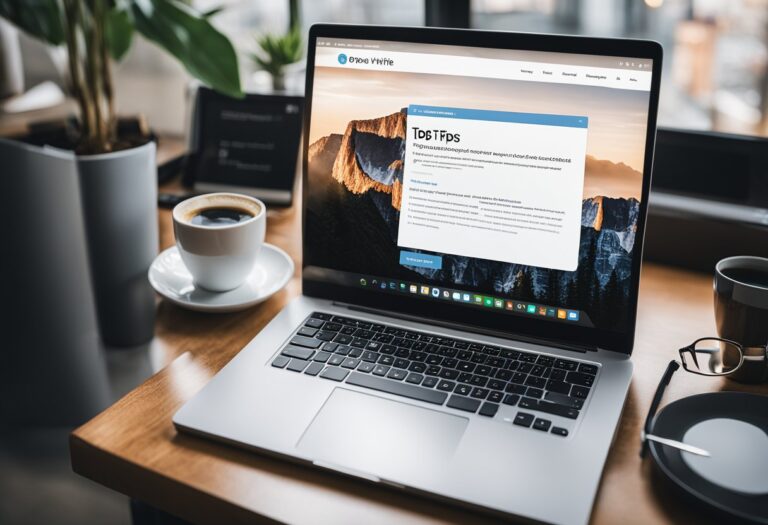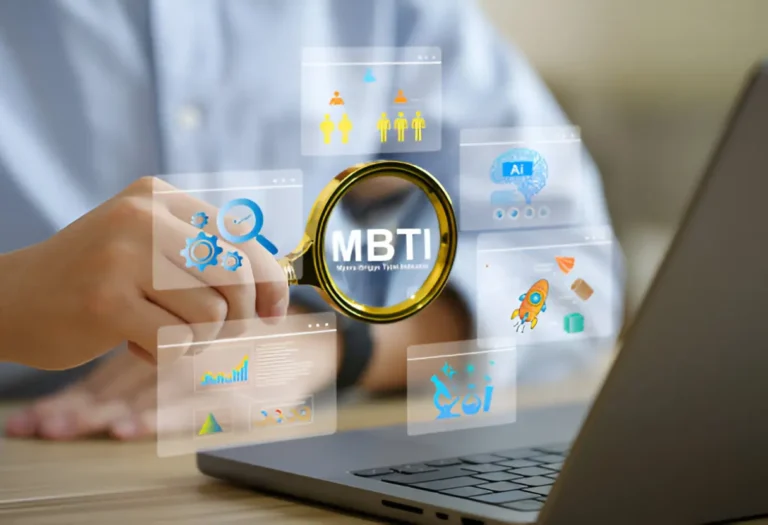10 Must-Know Blogging Tips for Beginners: A Clear and Confident Guide
Blogging can be a great way to share your ideas, experiences, and expertise with the world. Whether you’re looking to start a personal blog or promote your business, there are a few key things to keep in mind. In this article, we’ll share 10 must-know blogging tips for beginners to help you get started on the right foot.
First and foremost, it’s important to choose a niche or topic that you’re passionate about. This will help you stay motivated and engaged with your blog over the long term. Once you’ve chosen a topic, it’s important to do some research to see what other bloggers in your niche are writing about, and to find ways to differentiate yourself and provide unique value to your readers. One way to do this is to focus on a specific sub-niche within your broader topic area, such as “vegan baking” instead of just “baking,” or “digital marketing for small businesses” instead of just “digital marketing.”
Another important tip is to create high-quality content that provides real value to your readers. This could include how-to guides, tutorials, opinion pieces, or personal stories. Whatever type of content you choose to create, make sure it’s well-written, engaging, and informative. Additionally, it’s important to be consistent with your blogging schedule, whether that means posting once a week or once a day. By following these tips and staying committed to your blog, you can build a loyal audience and establish yourself as an authority in your niche.
Choosing Your Blogging Platform

When starting a blog, one of the first decisions a blogger has to make is choosing a blogging platform. There are numerous options available, each with its own advantages and disadvantages. In this section, we will discuss some of the factors to consider when choosing a platform.
Understanding Different Platforms
There are many blogging platforms available, including WordPress, Blogger, Wix, Squarespace, and more. Each platform has its own strengths and weaknesses, so it’s important to understand what each one offers.
WordPress is one of the most popular blogging platforms, and for good reason. It’s free, open-source, and highly customizable. It offers a wide range of plugins and themes, making it easy to create a unique blog. However, it does require some technical knowledge, and hosting and domain name fees can add up.
Blogger is another popular platform, and it’s free and easy to use. It’s owned by Google, so it integrates well with other Google products. However, it’s not as customizable as WordPress, and it’s not ideal for businesses or professional bloggers.
Wix is a website builder that also offers blogging capabilities. It’s easy to use and offers a drag-and-drop interface, making it ideal for beginners. However, it’s less customizable than WordPress and may not be suitable for more advanced bloggers.
Comparing Features and Flexibility
When choosing a blogging platform, it’s important to consider the features and flexibility it offers. Some platforms may be better suited for certain types of blogs or bloggers.
For example, if a blogger wants to monetize their blog, they may want to choose a platform that supports ads and affiliate marketing. If a blogger wants to create a photo-heavy blog, they may want to choose a platform that offers a wide range of gallery options.
It’s also important to consider the flexibility of the platform. Some platforms may be more restrictive than others, limiting what a blogger can do with their blog. Others may require more technical knowledge to customize.
In conclusion, choosing a blogging platform is an important decision that can impact the success of a blog. By understanding the different platforms available and comparing their features and flexibility, bloggers can choose a platform that best suits their needs.
Defining Your Niche

When starting a blog, it’s important to define your niche. This means narrowing down your focus to a specific topic or area of interest. By doing so, you can create content that is relevant and valuable to your target audience.
Researching Your Audience
To define your niche, it’s important to research your audience. This means understanding the demographics, interests, and needs of your target readers. You can use tools like Google Analytics and social media insights to gather this information. Once you have a better understanding of your audience, you can tailor your content to their specific needs and preferences.
Establishing a Unique Angle
In addition to researching your audience, it’s important to establish a unique angle for your blog. This means finding a specific angle or perspective that sets you apart from other bloggers in your niche. For example, if you’re starting a food blog, you could focus on vegan recipes or gluten-free cooking. By establishing a unique angle, you can attract a loyal following and stand out in a crowded blogging space.
Overall, defining your niche is a crucial step in creating a successful blog. By researching your audience and establishing a unique angle, you can create content that is both relevant and valuable to your readers.
Creating Compelling Content

Creating compelling content is one of the most important aspects of running a successful blog. Here are some tips to help you create content that engages your readers and keeps them coming back for more.
Writing Engaging Headlines
The headline is the first thing a reader sees, so it’s important to make it engaging and attention-grabbing. A good headline should be descriptive, concise, and give the reader an idea of what the post is about. Using numbers, questions, and strong verbs can help make your headline more compelling.
Structuring Your Posts
The structure of your post is just as important as the content itself. A well-structured post is easy to read and helps keep the reader engaged. Use subheadings to break up your post into sections, and use bullet points or numbered lists to make your content more scannable.
Incorporating Visuals
Incorporating visuals into your posts can help make them more engaging and shareable. Use images, videos, and infographics to break up your text and illustrate your points. Be sure to use high-quality visuals that are relevant to your content.
Remember, creating compelling content takes time and effort. By following these tips, you can create content that engages your readers and helps your blog stand out.
Optimizing for SEO

Blogging is a great way to share your ideas and experiences with the world. But, if you want your blog to be successful, you need to optimize it for search engines. This means making sure that your blog appears at the top of search engine results pages (SERPs) when people search for topics related to your blog. Here are some tips for optimizing your blog for SEO.
Conducting Keyword Research
Keyword research is the process of identifying the words and phrases that people use to search for topics related to your blog. By identifying these keywords, you can optimize your blog content to make it more relevant to search engine users. There are many tools available to help you with keyword research, such as Google Keyword Planner, Ahrefs, and SEMrush.
Utilizing SEO Tools
There are many SEO tools available that can help you optimize your blog for search engines. Some of these tools include Yoast SEO, Rank Math SEO, and All in One SEO Pack. These tools can help you optimize your blog content, meta descriptions, and titles. They can also help you identify broken links, duplicate content, and other issues that can affect your blog’s SEO.
On-Page Optimization Techniques
On-page optimization refers to the techniques that you can use to optimize individual pages on your blog. Some on-page optimization techniques include:
- Including your target keywords in the page title, meta description, and header tags
- Using descriptive and keyword-rich URLs
- Including internal and external links to relevant content
- Using alt tags for images
By optimizing your blog for search engines, you can increase your blog’s visibility and attract more readers. By conducting keyword research, utilizing SEO tools, and implementing on-page optimization techniques, you can improve your blog’s SEO and increase your chances of success.
Promoting Your Blog

Once you have written your blog post, it is crucial to promote it effectively to get traffic and engagement. Here are some tips to help you promote your blog:
Leveraging Social Media
Social media platforms such as Facebook, Twitter, Instagram, and LinkedIn can be powerful tools to promote your blog. Share your blog post on your social media profiles and engage with your followers. You can also join relevant groups and communities to reach a wider audience.
Creating visually appealing graphics and images can also help your post stand out on social media. Use tools like Canva to create eye-catching graphics that will grab the attention of your followers.
Networking with Other Bloggers
Networking with other bloggers in your niche can help you get more exposure and build relationships. Reach out to other bloggers and offer to collaborate on a project or guest post on each other’s blogs. You can also participate in online forums and communities to connect with other bloggers.
Email Marketing Strategies
Email marketing can be an effective way to promote your blog and build a loyal audience. Build an email list by offering a lead magnet or freebie in exchange for email addresses. Then, send regular newsletters or updates to your subscribers to keep them engaged.
Make sure your emails are visually appealing and easy to read. Use a tool like Mailchimp or ConvertKit to create professional-looking emails that will grab your subscribers’ attention.
By leveraging social media, networking with other bloggers, and using email marketing strategies, you can effectively promote your blog and grow your audience.
Analyzing and Improving

Using Analytics to Track Performance
One of the most important aspects of blogging is to track the performance of your blog. By using analytics tools such as Google Analytics, bloggers can gain insights into their audience and their behavior. With this information, bloggers can optimize their content and improve their blog’s performance.
Bloggers can use analytics to track metrics such as page views, bounce rates, and time on page. By analyzing this data, bloggers can identify which pages or posts are most popular and which ones need improvement. They can also identify where their traffic is coming from and what keywords are driving traffic to their blog.
Learning from Feedback
Another important aspect of improving a blog is to learn from feedback. Bloggers should encourage their readers to leave comments and feedback on their posts. By listening to their readers’ feedback, bloggers can gain insights into what their audience likes and dislikes about their blog.
Bloggers should also participate in online communities and forums related to their niche. By engaging with other bloggers and readers, bloggers can gain valuable feedback and insights into their blog’s performance.
Continuous Improvement
Blogging is an ongoing process, and bloggers should always be looking for ways to improve their blog. By continuously improving their blog, bloggers can keep their audience engaged and attract new readers.
Bloggers can improve their blog by optimizing their content for search engines, improving their website’s design and user experience, and promoting their blog through social media and other channels. By continuously improving their blog, bloggers can establish themselves as experts in their niche and attract a loyal following.
In conclusion, analyzing and improving a blog is essential for any blogger who wants to succeed. By using analytics tools, learning from feedback, and continuously improving their blog, bloggers can attract a loyal audience and establish themselves as experts in their niche.
Frequently Asked Questions

How can a beginner start a successful blog?
Starting a successful blog requires careful planning and execution. First, identify a niche that you are passionate about and that has a viable audience. Next, choose a blogging platform that suits your needs and budget. Then, create a content strategy and consistently publish high-quality content that resonates with your target audience. Finally, promote your blog on social media and other channels to attract readers and build a following.
What are some effective blog writing techniques for new bloggers?
Effective blog writing requires a mix of creativity, research, and attention to detail. Some techniques that can help new bloggers include writing attention-grabbing headlines, using storytelling to engage readers, incorporating visuals like images and videos, and optimizing blog posts for search engines.
What are common blogging mistakes that beginners should avoid?
Common blogging mistakes that beginners should avoid include failing to identify a target audience, neglecting to promote their blog, publishing low-quality content, and not engaging with their readers. It’s also important to avoid using copyrighted material without permission and to disclose any sponsored content or affiliate links.
Which blogging platforms are best suited for someone just starting out?
There are many blogging platforms available, but some of the best options for beginners include WordPress, Blogger, and Wix. These platforms are user-friendly, affordable, and offer a range of customization options.
How can new bloggers consistently generate engaging content ideas?
Generating engaging content ideas requires creativity and research. Some techniques that can help new bloggers include conducting keyword research to identify popular topics, staying up-to-date on industry news and trends, and engaging with their readers to get feedback and ideas.
What are the essential elements to include in a blog post for maximum impact?
To maximize the impact of a blog post, it’s important to include a strong headline, engaging introduction, relevant and informative content, and a clear call-to-action. It’s also important to optimize the post for search engines and to include visuals like images and videos to enhance the reader experience.




